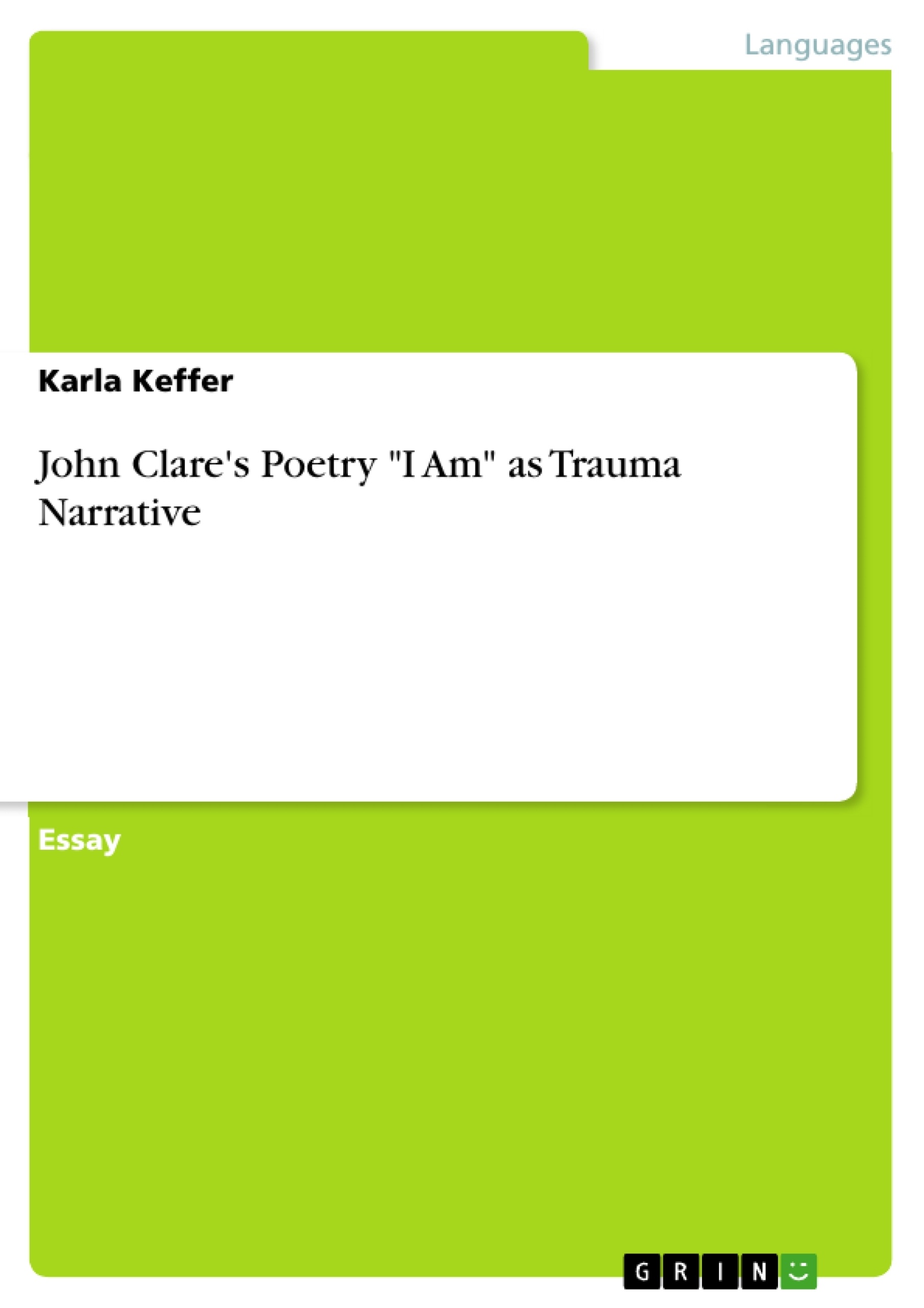In this paper, I expand upon Cathy Caruth's theories of "trauma narratives" to examine how Clare’s poetry is an expression of survival. By joining trauma narrative with poetry, Clare carves out a niche for himself that transcends the boundaries of his poverty-stricken birth and his subsequent institutionalization. In an age that did not take for granted the precept of self-invention, Clare used poetry as a means of centering himself, of returning to his essential nature. I propose that Clare’s language offers an insider’s view of a life that was too circumscribed for his evident intelligence, imagination, and verbal acuity. Stark and haunting, Clare’s poetry insists on a certain kind of authority, exercises jurisdiction over his circumstances, and serves as a muted, posthumous triumph over the would-be eradication of identity.
Literary critics have hailed John Clare’s poetry of his "asylum years" as rich, deeply emotional, and even more complex and skillful than the work of his prime. In the letters and poetry of the last 23 years of his life, Clare at once laments, rages against, and reluctantly acquiesces to his truncated circumstances. In this paper, I will argue that Clare’s poetry deserves further study as the narrative of a man imprisoned not only by the confines of an insane asylum but the conditions of his birth and the subsequent establishment of the Enclosure Laws. Written during an era that witnessed the first stirrings of mental health reform, at least in a few of the more affluent institutions, Clare’s poetry offers a view into the mind of a man and writer struggling to maintain an identity amidst the chaos.
Table of Contents
- Introduction
- Trauma and Identity
- Early Life and Trauma
- The Enclosure Acts and Dispossession
- Trauma and the Self
- John Clare's Poetry as Trauma Narrative
- "I Am"
- "My Early Home Was This"
- "To John Clare"
- Conclusion
Objectives and Key Themes
This paper aims to examine the poetry of John Clare through the lens of trauma theory, analyzing how his work reflects the experiences of displacement, self-loss, and recovery. This analysis will focus on Clare's poetry as a record of a man struggling to maintain his identity amid both internal and external chaos.
- The impact of trauma on identity formation
- The role of poetry as a form of self-expression and recovery
- The relationship between social and personal trauma
- The complexities of agency and responsibility in the face of trauma
- The literary and historical context of John Clare's work
Chapter Summaries
This section focuses on the main themes, arguments, or narrative elements of each chapter.
- Introduction: This chapter introduces John Clare and the argument that his poetry can be interpreted as a trauma narrative. It highlights the impact of deprivation, displacement, and biochemical imbalance on Clare's life and creative output.
- Trauma and Identity: This chapter explores the concept of trauma and its effects on identity, drawing on Judith Herman's trauma theories. It examines how Clare's experiences with the Enclosure Acts, his challenging upbringing, and the contrasting realities of his fame and obscurity contributed to his trauma.
- John Clare's Poetry as Trauma Narrative: This chapter delves into three specific poems by Clare - "I Am," "My Early Home Was This," and "To John Clare." It analyzes how these poems reflect the themes of displacement, self-loss, and the experience of trauma.
Keywords
The primary keywords and focus topics of this paper include trauma, identity, poetry, John Clare, Enclosure Acts, displacement, self-recovery, narrative therapy, and Judith Herman.
- Quote paper
- Karla Keffer (Author), 2017, John Clare's Poetry "I Am" as Trauma Narrative, Munich, GRIN Verlag, https://www.grin.com/document/418169




